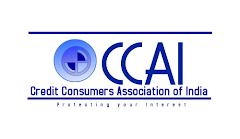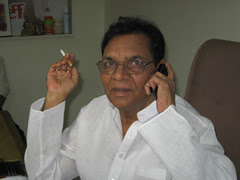
Tuesday 9 September, 2008
SC refuses to allow high interest on credit cards
The following is report appearing in Mumbai Edition of Times of India dated 10th September 2008.
Dhananjay Mahapatra | TNN
NEW DELHI: Credit card users can breathe easy for the moment, with the Supreme Court refusing to stay a national consumer forum directive that banks cannot charge more than 30% interest per annum on defaults on card payments. This will protect consumers from exorbitant charges, which are as high as 49% in some cases.
Banks had appealed against the consumer court order and asked for a stay on it. Admitting appeals filed by MNC banks — HSBC, American Express, Citibank and Standard Chartered Bank — challenging the consumer forum order, a Bench comprising Justices B N Agrawal and G S Singhvi issued notice to Reserve Bank of India and the NGO 'Awaz', on whose petition the limit on interest rate was imposed.
What is revealing is the banks listing as many as 27 factors why they needed to charge higher interest rates and these included calls made from service centre to seek new customers. It would appear that almost all costs involved in banking activities over telephone and internet were to be charged to the hapless credit card holder, going by the banks' submissions to the SC.
When banks pressed for a stay on the ground that they are regulated by the RBI regulation guiding interest rates, the Bench merely issued notice on their applications and sought responses within three weeks.
But the threat of a higher interest has not gone away as the banks — HSBC, American Express, Citibank and Standard Chartered Bank — have teamed up to persuade the SC of what they said were their compulsions in charging between 36% and 49% interest.
The July 7, 2007 order of the National Consumer Disputes Redressal Commission (NCDRC) had ruled that "charging of interest rates in excess of 30% per annum from credit card holders by banks for the former’s failure to make full payment on the due date or paying the minimum amount due, is unfair trade practice".
It had also said that penal interest could be levied only once for the period of default and should not be capitalised, while also terming the practice of computing interest on monthly basis as "unfair trade practice". Among the factors listed by the banks justifying the exorbitant rates was the cost of calls. In other words, calls made randomly by the bank's authorised call centres incessantly to persuade people to take a credit card, is also taken into account for realisation through charging of penal interest from a defaulting card holder.
The other notable factors listed are:
Processing cost for setting up a new card in operating system
Cost of courier and cost of embossing the card
Cost of providing phone banking service
Cost of sending monthly statements
Cost of providing internet banking facility
Cost of waiving charges for service reasons
Cost of marketing and promotional offers
Cost of rewards and loyalty programme
"The National Commission has failed to appreciate that the rate of interest on defaulted or partial payments of dues is determined by taking into consideration various factors, including the risks of default, and therefore, this commission may not determine the issue as to whether the interest at the rates of 36% to 49% per annum is excessive," the banks said.
The original story appears here
Subscribe to:
Posts (Atom)

